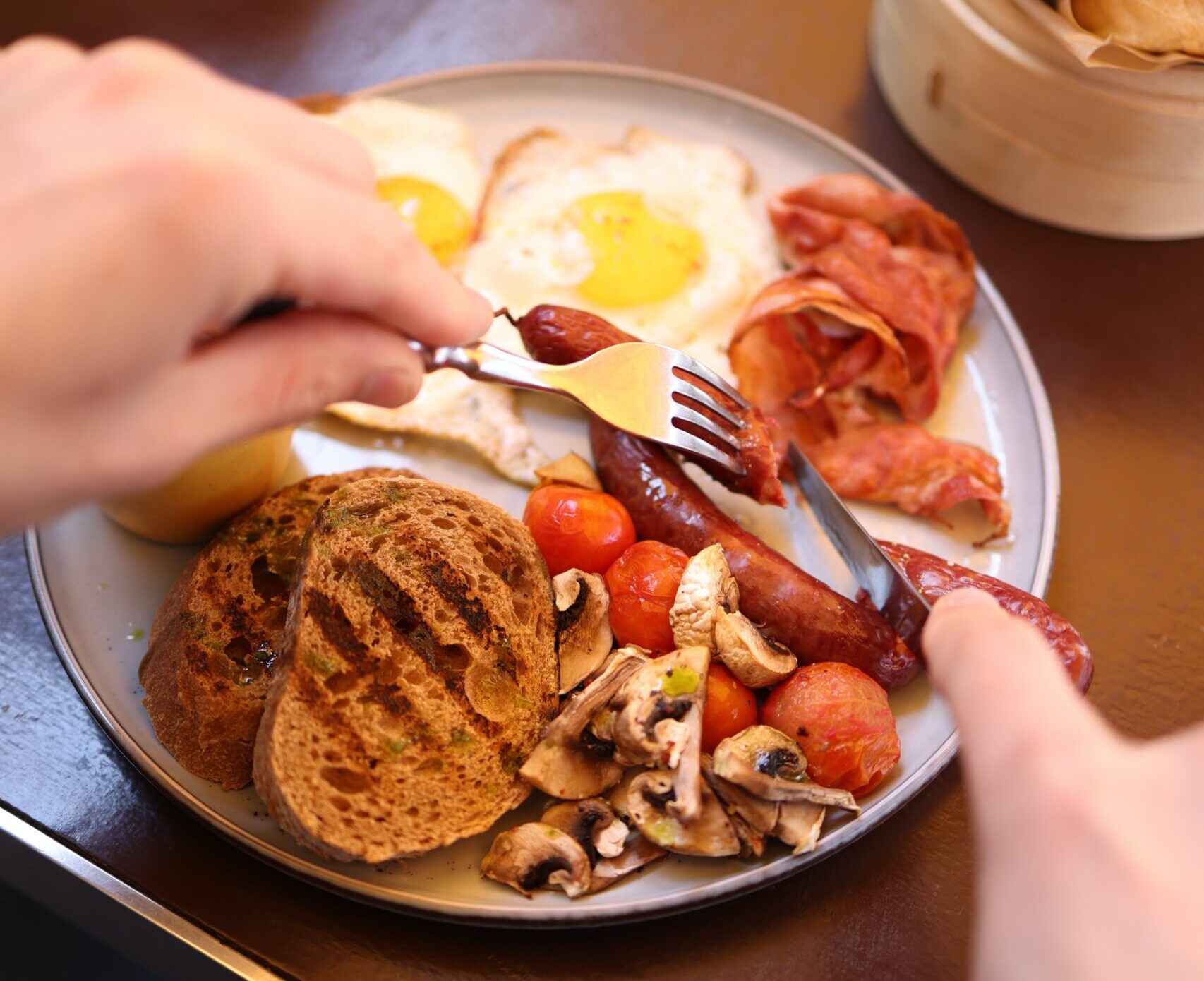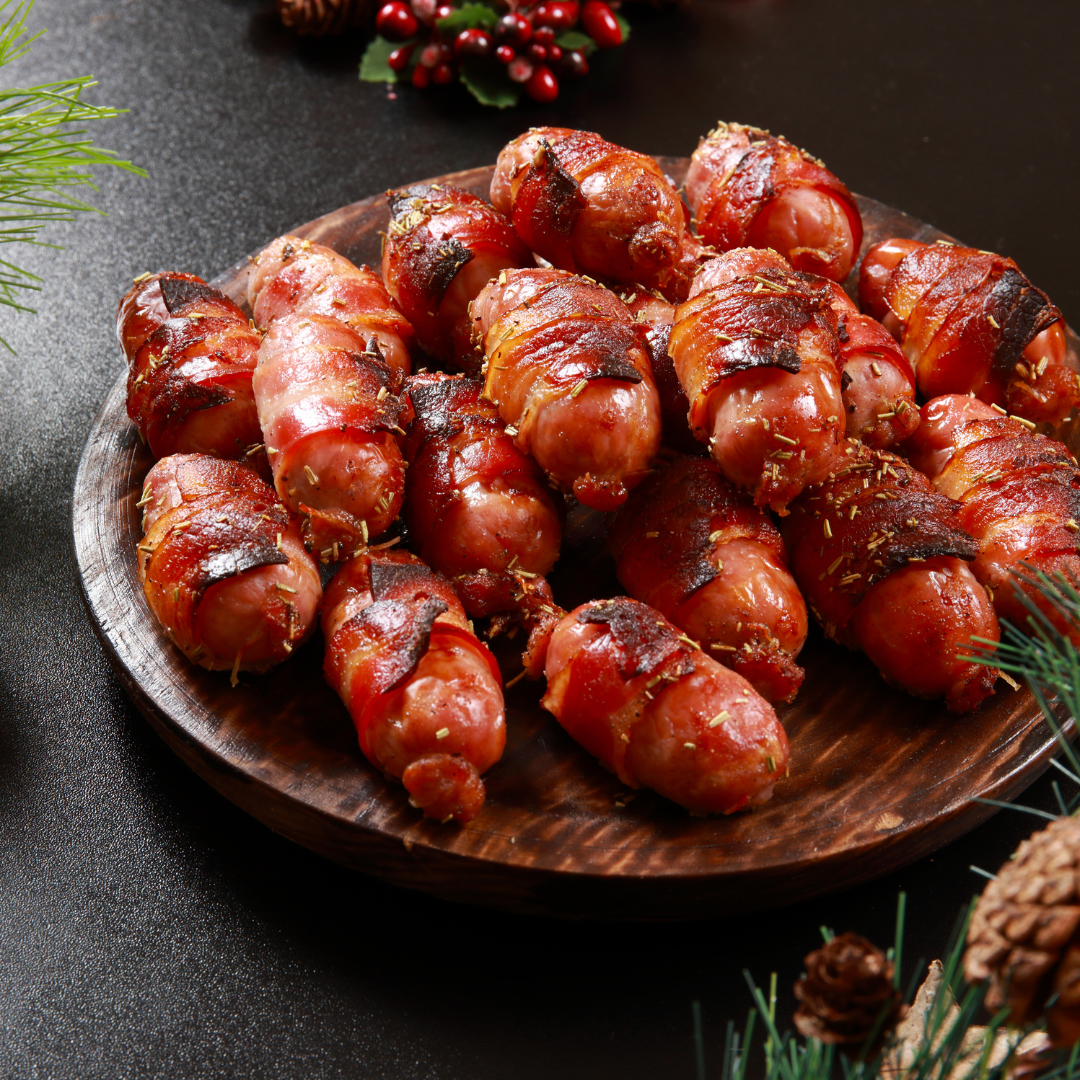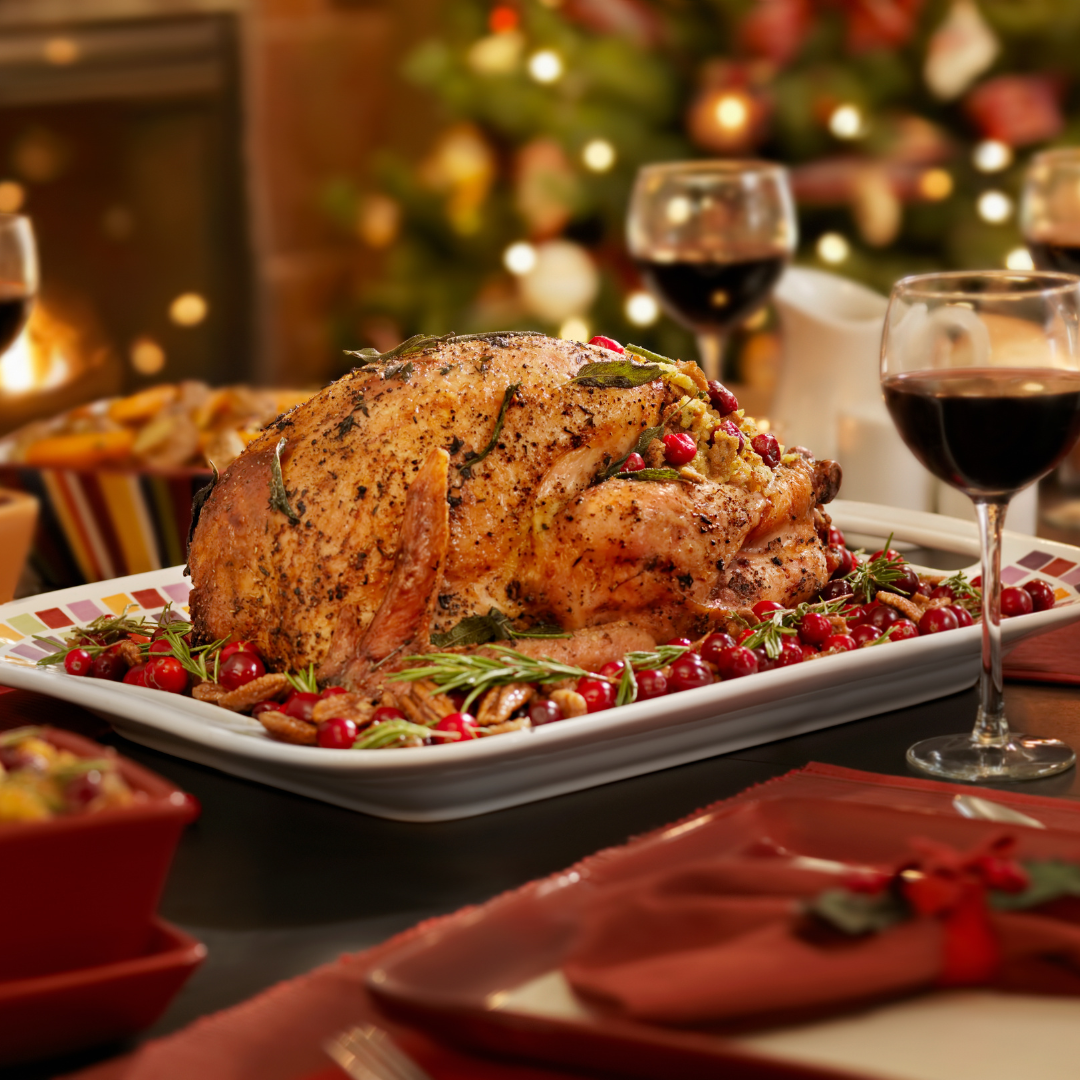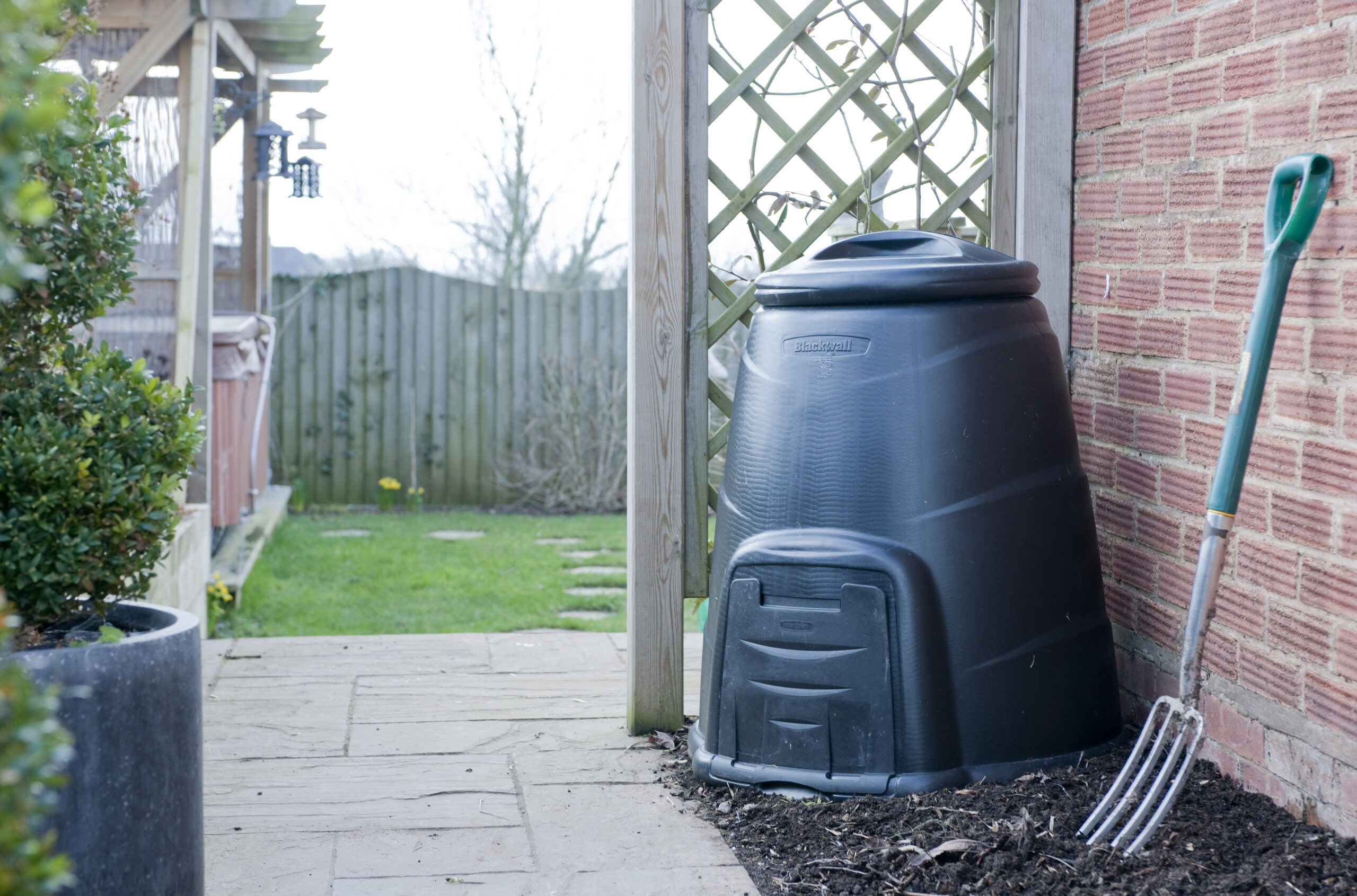Hello and welcome to the December 2023 edition of the Zero Waste LCR Food for Thought blog.
This monthly round-up of food-related dates features tips, recipes and facts which aim to help Liverpool City Region residents cut down on food waste to protect our planet for future generations…
Food Waste in Liverpool City Region
According to the Waste Composition Analysis 2021/22 – Kerbside report produced by Merseyside Recycling & Waste Authority, food waste across the six districts of Liverpool City Region (Halton, Knowsley, Liverpool, Sefton, St Helens and Wirral) makes up an average of 31.6% of all the kerbside collected residual waste collected, which equates to an estimated 134,107 tonnes per annum. Furthermore, it is estimated that 73.2% of all the food in the kerbside collected residual waste is classified as avoidable (meaning it is disposed of packaged or in a prepared but uneaten condition).
The Good News
The good news is that there are methods that residents across the region can introduce to reduce the amount of food waste. Generating less waste is a pivotal component in reducing the effects of climate change. Beyond creating a more sustainable environment, reducing food waste saves money and provides plenty of chances to get creative in the kitchen – even for those who wouldn’t usually dream of cooking.
So, without further ado, dig in and enjoy!

English Breakfast Day (Saturday 2 December)
Saturday 2 December marks perhaps one of the most iconic dishes to hail from our country – we, of course, referring to the English breakfast (also commonly known as the “full English”).
Here, we look at a few tips and facts which can help you reduce food waste and shrink your carbon footprint…
Try not to let your eyes get bigger than your belly!
For many in a ravenous condition, the Full English is just too tempting to turn down, due to its hearty variety of comforting foods and flavours.
A Full English typically consists of sausages, bacon, eggs, beans, mushrooms, tomatoes and toast.
Aside from the above ingredients, English breakfasts often include additional items such as fried bread, black pudding and hash browns (other potato-based alternatives include diced crispy potatoes, potato rosti or even chips).
Many reading this piece may be in a mouth-watering state just reading that. Others will perhaps be wondering “how on earth could a person eat so much in one sitting?”.
As for us, the first thing that comes to mind is “how do we stop so much food potentially going to waste?”… After all, many would probably be full for a day after eating such a huge amount of food.
Our advice here is simple: Keep your portion sizes sensible! Here are some tips on how you can do so:
- Opt for one of everything if you need the whole hit of flavours – instead of multiples, plump for one of each where possible (and go smaller on portions such as mushrooms and baked beans).
- It may seem obvious, but if there are certain foods you don’t enjoy as much as others, then ditch those in favour of the ones you like. You don’t have to have the whole dish as listed. If you’re in a café, diner or restaurant, there’s no need to be shy… You can ask them to leave the items you know you won’t eat off your plate. They won’t be offended, as they will receive requests like this on a regular basis.
- Eliminate the stodge! Cutting out (or reducing) items such as toasted or fried bread, beans and potato-based foods such as hash browns or chips could help you to beat the bloat!
Cut meat out (if you can)
From a carbon-reducing point of view, cutting down on meat consumption is one of the most effective ways we can combat climate change.
Although the pork which makes up English breakfast favourites such as sausage, bacon and black pudding may be considered as a low impact food, it still has a higher impact than plant-based food.
There are many vegetarian and vegan choices for sausages, bacon and black pudding available at your local supermarket and even in some local butcher shops!
Already established brands such as Quorn and Linda McCartney Foods have in recent years been joined by thriving vegan meat providers such as THIS and Beyond Meat – all of which have tasty alternatives available to try.
That said, if meat alternatives aren’t your thing, the don’t beat yourself up about it.
Like we say, pork is a low impact meat option – although, there are ways we can more environmentally-friendly in our buying choices…
Buy local
Buying pork sausages, bacon and black pudding at your local butcher is often the most sustainable option.
This is because the meat that butchers sell tends to be sourced from local suppliers, meaning less miles travelled. The same local suppliers also veer towards the practice of sustainable farming, which helps to conserve the landscape and reduces the supply chain.
If you are purchasing your pork products from a supermarket instead of your local butcher, then look out for labels such as ‘Organic’, ‘Free Range’ and ‘RSPCA Assured + Outdoor Bred/Reared’.
Buying local is also the best option when it comes to purchasing tomatoes, mushrooms and / or potatoes for your English breakfast. As with butchers, local greengrocers tend to source their produce from local suppliers that practice sustainable farming. They also allow you to pack loose foods into a paper bag (or reusable produce bag) which is a great way of avoiding plastic packaging.
If shopping at a local greengrocer isn’t an option, then look out for the LEAF (Linking Environment and Farming) logo or Soil Association logo at the supermarket. These labels offer accreditation which helps shoppers make local, sustainable fruit and vegetable purchases.

Pigs in Blankets Day (Tuesday 5 December)
Tuesday 5 December marks the celebration of a firm festive favourite… We are, of course, referring to pigs in blankets!
Aside from the points we’ve already covered in the previous ‘English Breakfast Day’ section about sausages and bacon (i.e., buying from local butcher, or looking out for the right labels in the supermarket), buying vegan pigs in blankets is the other advice we’d give…
Once upon time, the concept of vegan pigs in blankets would seem like a pipe dream to some, and absurd to others.
Fast forward to today and the concept is now a fully established realisation. What’s more, vegan pigs in blankets are proving to be a hit!
As well as the benefit of providing a more climate friendly option to their meaty counterparts, vegan pigs in blankets are easy to buy and even easier to eat!
Hailed for their meat-like taste, many supermarkets – including Aldi, Asda, Morrisons and M&S to name a few – are producing their own brand of vegan pigs in blankets, available alongside products from established vegan retailers such as THIS.

Christmas Day (Monday 25 December)
Whether Christmas makes you brim like Buddy the Elf or you’re a Santa-hating Scrooge, one thing’s for sure… There’s no time of year that does food quite like Christmas!
But beyond the festive flavours that make us happy at the mere thought, lies a damning fact: During Christmas, we waste so much food!
Festive food waste facts
According to BusinessWaste.co.uk, around 42 million dishes worth of Christmas food ends up in the bin.
The same article states that we throw away 263,000 turkeys, 7.5 million mince pies and 740,000 portions of Christmas pudding.
Figures also indicate the waste of 17.2 million sprouts, 11.3 million potatoes, 9 million carrots and (despite us lauding their popularity in the previous section of this blog) 7.1 million pigs in blankets.
The impact
Such shocking statistics are a big contributor towards climate change.
Think about it. These figures – in their thousands and their millions – are UK-based only.
If our country alone is stomping such a big carbon footprint on the earth, then imagine the impacts being felt elsewhere.
Curious to find out more about Christmas waste on a global scale? A quick search online will tell you all you need to know.
So, how can we prevent food waste at Christmas?
- Plan, plan, plan! Speak to your fellow diners to get a gauge on what Christmas dinner ingredients they do and don’t like so you can make a list. Ask them how much they will realistically eat too – some of us can handle more than others and there’s no shame in it, either way. Perhaps the most sensible advice we can give is don’t go shopping spontaneously on an empty stomach… That is when you run the risk of getting eyes bigger than your belly!
- Check what you have in before you make that final dart to the shops: Once you’ve done your planning and you’ve got your shopping list, do one final check before you leave the house. You may already have those gravy granules or that stuffing mix in already. Or, if there are homemade elements to the meal, you may already have the ingredients – just check their expiration dates. If they’re still usable, use them!
- Tell guests what you need: Many people have guests over for dinner on Christmas Day. Odds are that they’ll turn up with something for the table – if this is usually the case, tell them in advance to bring things you need. It’s likely you’ll have all the fresh, perishable foods taken care of, so suggest items with a long shelf life. Or just tell them that their company is all you need!
- Press the pause button and freeze! Make sure your freezer has some space in it ahead of Christmas Day. You may have excess par-boiled veggies that can be left to cool and then frozen, for instance! For more specific advice, just search the food items you need storage advice on via Love Food Hate Waste’s Food Index.
- Laden your loved ones with leftovers: If you have family and friends who can make use of your lovely leftovers, then pop them an airtight container for them to put in the fridge until they’re ready to chow down.
- Or, if you’re saving your leftovers for yourself, get creative! Make bubble and squeak. Wrap them up in a giant Yorkshire pud. Make a burrito for all we care! Whatever it takes for you to keep your leftovers out the bin is fine with us (so long as you’re consuming them safely, of course!). Love Food Hate Waste’s Christmas leftovers recipes page is a good place to start for inspiration. For a more extensive list of leftover recipes, visit co.uk.
- Compost your uncooked, organic waste: If you have a compost bin, then it’s time to use those vegetable scraps and peelings to feed your soil and fuel your garden. If you don’t have a compost bin, read on to find out how you can get one for free* via our home composting scheme…
Home Composting with Zero Waste LCR
Residents across the six districts of Liverpool City Region (Halton, Knowsley, Liverpool, Sefton, St Helens, Wirral) are eligible to become a member of the Home Composting Network, free of charge.
Upon signing up and becoming members, residents will receive a free compost bin*, a ‘How To, guide, composting tips, and subscription to our composting e-newsletter.
Why compost?
Composting is a great way of turning organic waste (including food scraps and garden trimmings) into a rich fertiliser to use on your lawn and plants. Rather than going to residual waste and feeding climate change, these organic materials can be reused to boost productivity in your garden!
Find out more and sign up today at www.zerowastelcr.com/working-towards-zero-waste/get-involved/.
*Free compost bins are subject to limited availability, while stocks last.
That’s a wrap!
Thank you for taking the time to read our Food for Thought blog – we hope you’ve enjoyed it and would like to take this opportunity to wish you and all your loved ones the very best for Christmas and the New Year.
If you are looking for more festive sustainable tips, please visit our #ChooseToReuse blog series. It features advice on how you can reuse, as well as a whole host of other eco-friendly ideas which can help you stop waste, save money and protect the planet.
Please note, with the exception of MRWA-published documents, external links feature within this article are not officially endorsed by MRWA and are for reference and information purposes only.


